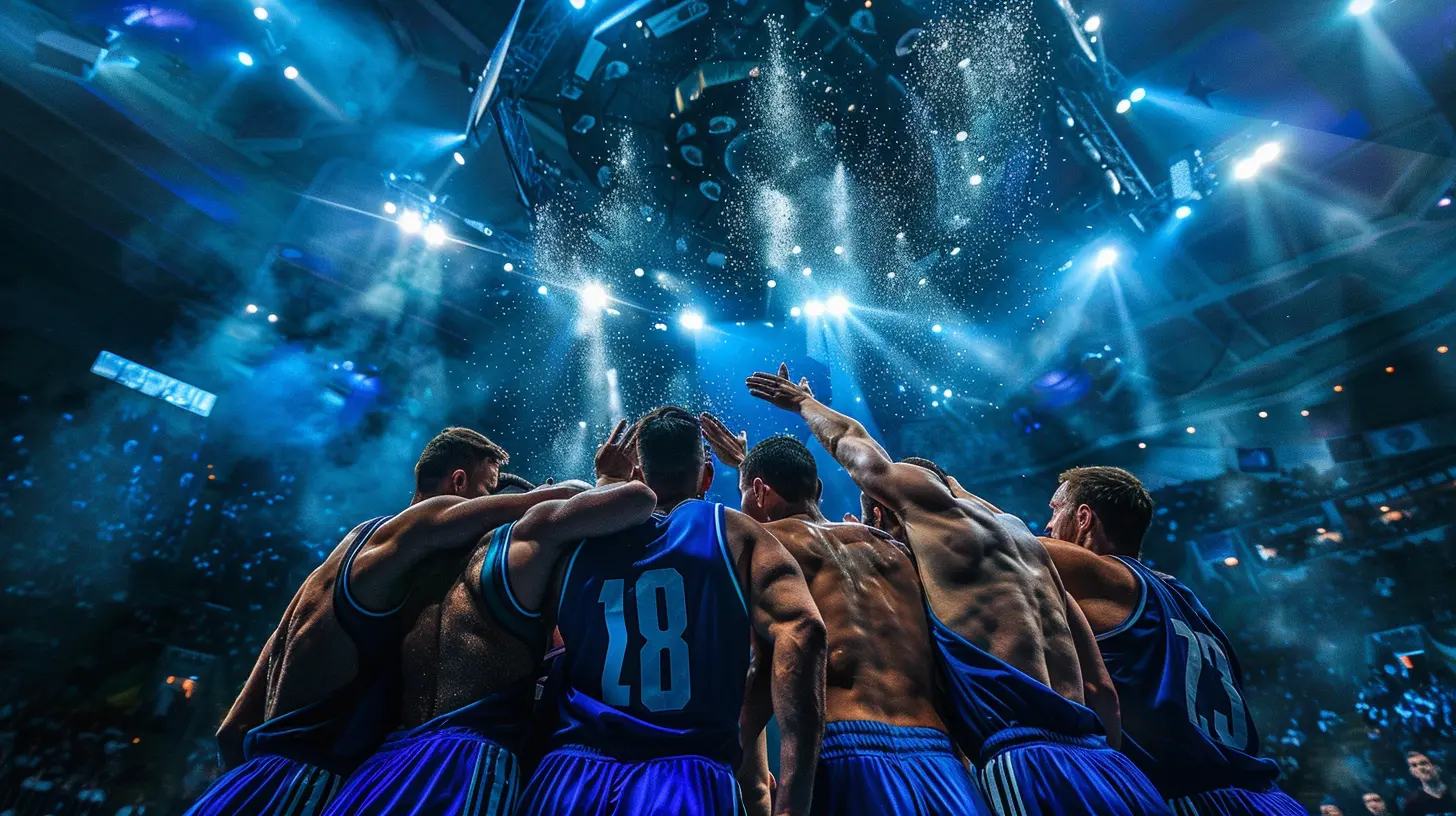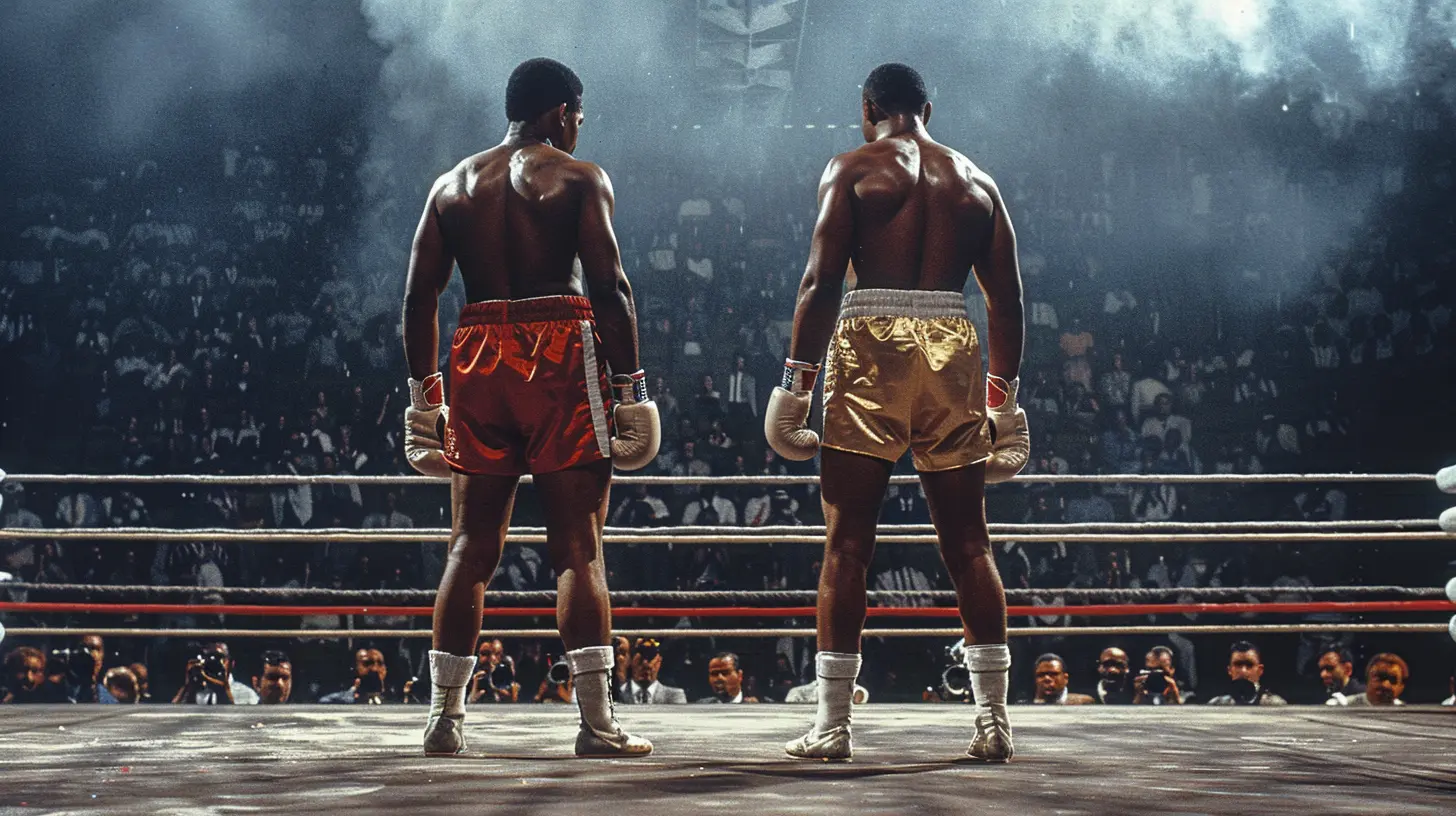Standing Tall in Defeat: Athletes Who Exemplify True Sportsmanship
17 November 2025
When we think about sports, the first images that likely come to mind are roaring crowds, nail-biting scores, and athletes lifting trophies high above their heads. Winning, obviously, feels great. But what about those moments when the scoreboard doesn’t swing in your favor? The truth is, some of the most powerful and unforgettable moments in sports come not from victory—but from how athletes respond to defeat.
Let’s talk about standing tall when the odds are stacked against you. Let’s shine a light on those athletes who show us that grace, humility, and respect can be more impressive than any medal. This is about the real MVPs—those who champion true sportsmanship, even when they don’t walk away with the win.

What Does True Sportsmanship Really Mean?
It’s more than a handshake at the end of a game or a polite “good game” muttered through gritted teeth. True sportsmanship is about integrity. It’s about putting character over competition. It’s when an athlete respects their opponents, plays fair, and embraces the outcome—win or lose—with dignity.Sportsmanship doesn’t always make the highlight reel, but it’s what defines a great athlete. And hey, let’s be real: it takes a lot more strength to shake off a tough loss with grace than it does to throw a tantrum or point fingers. Don’t you agree?

Standing Tall in the Face of Loss
No one likes to lose. But in sports, losses are inevitable. What sets an athlete apart isn’t just how they win—it’s how they carry themselves when the scoreboard doesn’t go their way.Let’s walk through some inspiring stories of athletes who stood tall in defeat. These legends remind us that the spirit of the game is often bigger than the game itself.
1. Roger Federer – The Class Act of Tennis
Let’s start with a familiar face—Roger Federer. This Swiss maestro isn’t just known for his graceful backhand, but also for his poise and sportsmanship on the court.Remember the 2009 Australian Open final against Rafael Nadal? It was an emotional five-set thriller, and Federer lost. During the post-match ceremony, overwhelmed with emotion, he broke down in tears. But instead of boasting, Nadal embraced him and gave Federer his moment. Federer later praised Nadal’s performance with heartfelt words and grace.
That moment said it all. Federer mastered not just the game—but the art of humility.

2. Simone Biles – Owning the Toughest Decision
At the 2020 Tokyo Olympics (held in 2021), Simone Biles shocked the world when she withdrew from several gymnastic events citing mental health concerns. She could’ve pushed through, risked injury, or tried to save face. But she chose her well-being over medals—an incredibly brave move.Despite the criticism and noise, Biles stood tall. She supported her teammates from the sidelines, celebrated their victories, and later returned to compete in the balance beam finals.
Her decision? A masterclass in self-awareness, courage, and true sportsmanship.
3. Abby Wambach – Passing the Torch
Abby Wambach, USWNT legend, finished her international soccer career with class. After the team’s World Cup win in 2015, she didn’t hog the spotlight. Instead, she put her arm around the younger players—like Alex Morgan and Megan Rapinoe—and let them shine.She understood that legacy isn’t just about hoarding the wins. It’s about lifting others up, passing the torch, and knowing when to step aside with grace.
That’s the kind of teammate every athlete dreams of having.
4. Andrew Flintoff – Compassion Over Victory
Cricket fans might recall the 2005 Ashes series between England and Australia. After a nail-biting match, England secured an epic win at Edgbaston. But what truly made headlines was what Flintoff did after the game.Instead of celebrating wildly, he went straight over to Brett Lee—Australia's fast bowler, who had just faced a narrow, crushing defeat—and offered a supportive handshake and words of consolation.
That small gesture? It echoed louder than any cheer from the crowd.
5. Michael Phelps – Praising a Rival
Michael Phelps, the most decorated Olympian of all time, is known for his fierce competitiveness in the pool. But he also knows how to give credit where it’s due.At the 2016 Olympics, he was beaten in the 100m butterfly by Singapore’s Joseph Schooling. Instead of sulking, Phelps smiled, congratulated him, and posed proudly beside him on the podium.
Phelps knew that sometimes, the passing of the torch isn’t a loss—it's part of the journey.
6. Novak Djokovic – Applauding the Underdog
In 2020, Novak Djokovic lost a dramatic US Open match to Dominic Thiem after being disqualified in a previous round under controversial circumstances. Instead of letting his own disappointment cloud the moment, Djokovic cheered Thiem on and called attention to his deserving win.We often expect top athletes to be sore losers. But Djokovic reminded everyone that even on tough days, recognizing another’s hard-earned victory is one of the purest forms of sportsmanship.
7. Carli Lloyd – Going Out with Grace
In her final match for the US Women’s National Soccer Team in 2021, Carli Lloyd left the field to a standing ovation. But instead of making it all about her, she emphasized how grateful she was to represent her country.No drama. No self-centered speeches. Just honest emotion and a thank-you to the game that gave her everything.
She didn’t just represent her nation—she represented class.
What Makes These Athletes Different?
So what do all these stories have in common? One word: character.These athletes didn’t let defeat define them. Instead, they used it as a spotlight to show who they truly are. And let’s face it—we can all take something from that. Whether we’re losing a game, falling short of a goal, or just having a rough day, choosing to respond with integrity and poise? That’s what real strength looks like.
Why Sportsmanship Matters More Than Ever
In the age of viral highlights and sideline drama, sportsmanship might seem like a dying art. But it’s still there. And when it shows up? It shines.It reminds fans what sports are really about: bringing people together, building respect, and inspiring the next generation.
Let’s be honest—kids don't look up to athletes just because they score goals or win medals. They admire how those athletes act when the pressure is on, when the chips are down, and when they lose with their heads held high.
How You Can Stand Tall in Everyday Life
Here’s the kicker—you don’t have to be on a national stage to show sportsmanship.Whether you play in a weekend league, coach your kid’s team, or even just love hitting the gym, the way you carry yourself in defeat says volumes about your character.
Lose a game? High-five the winning team.
Miss a lift at the gym? Cheer on your workout buddy anyway.
Life, like sports, doesn’t always go your way. But how you react? That’s where character is born.
The Takeaway: Be a Champion in Spirit
At the end of the day, standing tall in defeat is about more than just sports. It’s a mindset. It’s resilience in the face of failure, grace under pressure, and kindness when it would be easier to walk away bitter.The world needs more examples like these athletes—individuals who remind us that victory is sweet, but dignity? That’s forever.
So next time the scoreboard isn’t in your favor, channel your inner Federer, Biles, or Wambach.
Because being remembered as a champion isn’t just about wins—it’s about who you are when nobody’s watching.
all images in this post were generated using AI tools
Category:
Sportsmanship AwardsAuthor:

Preston Wilkins
Discussion
rate this article
1 comments
Foster Dillon
True sportsmanship shines brightest in defeat, showcasing character and resilience in athletes.
November 21, 2025 at 12:35 PM

Preston Wilkins
Thank you for your insight! Indeed, the true essence of sportsmanship is revealed when athletes face adversity with grace and strength.


